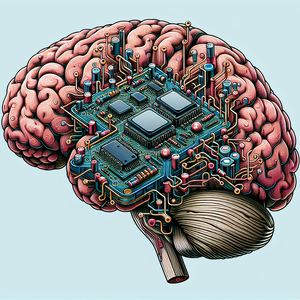AI Job Boom in Unexpected Industries: How Generative AI Is Transforming Work Beyond Tech

Agriculture, often seen as one of the most traditional and hands-on industries, is undergoing a profound digital transformation. Generative AI is being harnessed to solve age-old challenges, such as maximizing yields, predicting disease outbreaks, and optimizing resource use. As farms become "smarter," new career opportunities are sprouting: - AI-Powered Crop Analyst: These professionals use generative AI models to interpret satellite imagery, soil data, and weather patterns, translating vast datasets into actionable insights for farmers. For instance, they can predict the best planting times or identify areas at risk of pest infestations. - Precision Agriculture Consultant: By leveraging AI-driven systems, these experts help farmers implement data-backed strategies for irrigation, fertilization, and pest management, dramatically increasing efficiency and sustainability. Major agricultural equipment manufacturers like John Deere, as well as AI startups such as Taranis and CropX, are recruiting specialists who can bridge the gap between fieldwork and digital analytics. These roles often require a mix of agricultural experience and a willingness to master new AI technologies—skills that are increasingly attainable through upskilling programs and digital certifications.
Hospitality: Enhancing Guest Experiences with AI
The hospitality industry is also riding the AI wave, using generative AI to refine both customer service and operational efficiency. AI is no longer just powering back-end systems; it is now front and center in the guest experience: - AI Concierge: Trained staff use AI chatbots and recommendation engines to create personalized travel itineraries, suggest dining options, and address guest queries in real time. This role requires a blend of hospitality know-how and digital savvy, enabling more customized service than ever before. - Hospitality Data Curator: These professionals manage and curate the data used to train AI systems, ensuring that recommendations and guest interactions remain relevant, accurate, and culturally sensitive. Major hotel chains such as Marriott International are investing in AI-driven guest services, creating hybrid roles that combine traditional hospitality skills with AI literacy. The ability to work alongside AI tools is becoming essential, opening new paths for career growth within the sector.
Education: Personalized Learning and AI Mentorship
Education is experiencing a renaissance thanks to generative AI, which is enabling more personalized and effective learning experiences. AI-powered tools can tailor lesson plans to individual students, automate grading, and provide instant feedback. This is giving rise to innovative new roles: - AI Curriculum Designer: These educators collaborate with AI systems to develop adaptive learning materials that cater to the unique needs and abilities of each student, moving away from one-size-fits-all teaching. - EdTech AI Facilitator: Specialists in this role train teachers and students to use generative AI platforms, ensuring technology is integrated ethically and effectively into the classroom. Companies like Duolingo and Khan Academy are actively seeking professionals who can bridge pedagogy and technology, ensuring AI tools are thoughtfully incorporated into educational environments.
Beyond the Obvious: AI Jobs in Every Sector
The examples above only scratch the surface of AI’s reach. Retailers are seeking AI-powered supply chain analysts. Environmental organizations are hiring conservationists who use AI to monitor wildlife populations. Logistics firms need route optimization specialists who can interpret AI-generated solutions. According to recent data, the demand for professionals who can leverage generative AI tools has surged across industries, with new job titles such as "prompt engineer" and "AI model trainer" appearing in job listings. Crucially, many of these positions are accessible to those from non-technical backgrounds. With the proliferation of on-the-job training, micro-credential programs, and online courses, workers can gain the digital skills needed to thrive in these emerging roles—even if they started in a completely different field.
The generative AI job boom is no longer the exclusive domain of tech companies. As AI seeps into agriculture, hospitality, education, and beyond, it is creating a wealth of new career opportunities that blend traditional expertise with digital skills. For professionals willing to learn and adapt, the future holds exciting prospects far beyond the conventional tech sector. The next wave of AI innovation won’t just be about smarter machines—it will be about empowering people in every industry to work smarter, more creatively, and with greater impact than ever before. As AI continues to transform the world of work, the possibilities for those outside the tech world are just beginning to bloom.
AI-Powered Crop Analyst
John Deere, CropX, Taranis
Overview
Analyze multispectral satellite images and sensor data using generative AI platforms to assess crop health, predict yields, and identify pest or disease risks.
Core Responsibilities
Translate complex AI-generated insights into actionable recommendations for farmers, such as optimal planting schedules or targeted interventions.
Collaborate with agronomists and field technicians to validate AI findings and continually refine predictive models.
Required Skills
Proficiency in data analysis (Python, R)
Familiarity with agricultural cycles
Experience with remote sensing tools
AI Concierge Specialist
Marriott International, Hilton, boutique hospitality tech startups
Overview
Deploy and manage AI-driven chatbots and recommendation engines to deliver highly personalized guest experiences in real time.
Core Responsibilities
Integrate AI systems with traditional concierge services, ensuring seamless communication between guests and staff.
Continuously train AI models using guest feedback and local data to improve relevance and cultural sensitivity.
Required Skills
Customer service expertise
Digital literacy
Experience with AI platforms (e.g., IBM Watson, Salesforce Einstein)
AI Curriculum Designer
Duolingo, Khan Academy
Overview
Collaborate with AI developers to co-create adaptive educational content tailored to diverse student learning profiles.
Core Responsibilities
Design and test lesson modules that leverage generative AI for personalized instruction, assessment, and feedback.
Evaluate the pedagogical effectiveness of AI-generated materials and ensure alignment with educational standards and ethical guidelines.
Required Skills
Background in education or instructional design
Familiarity with AI-driven learning platforms
Strong analytical abilities
Hospitality Data Curator
major hotel chains, travel technology companies
Overview
Curate, clean, and structure large datasets (e.g., guest preferences, transaction histories) to train and optimize generative AI models for guest interaction and recommendation engines.
Core Responsibilities
Monitor AI outputs for accuracy, bias, and cultural relevance, collaborating with data scientists and hotel managers to improve system performance.
Develop guidelines for data governance and privacy in line with hospitality industry regulations.
Required Skills
Data management (SQL, Excel)
Understanding of data privacy laws (GDPR, CCPA)
Hospitality experience
Conservation AI Analyst
WWF, Conservation International, environmental tech startups
Overview
Deploy AI-powered tools (drones, camera traps, acoustic sensors) to monitor wildlife populations and habitats, interpret generative AI outputs for ecosystem health assessment.
Core Responsibilities
Translate AI-generated data into actionable conservation strategies, such as identifying poaching risks or mapping species migration.
Partner with ecologists, NGOs, and tech vendors to refine models and ensure ethical AI use in fieldwork.
Required Skills
GIS proficiency
Knowledge of ecology or conservation biology
Experience with AI or machine learning tools


